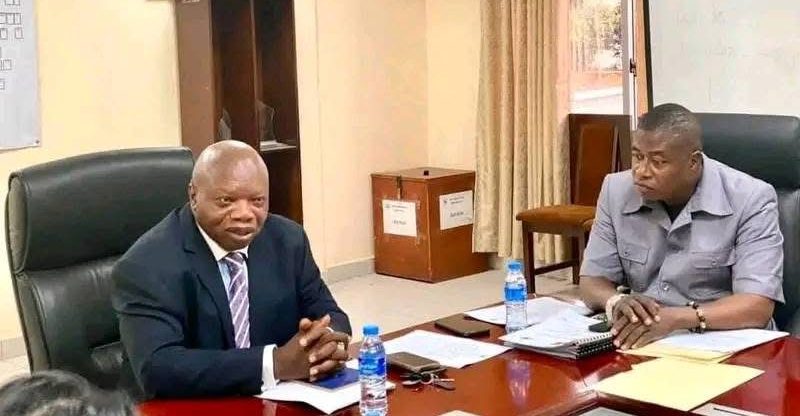On February 10, 2025, the Anti-Corruption Commission (ACC), in partnership with a team from the International Monetary Fund (IMF), convened a high-level diagnostic review meeting at Integrity House’s ACC Conference Room.
The primary focus of the meeting was to assess and identify key areas of corruption risk and to explore effective mitigation strategies.

Senior officials from both the ACC and the IMF participated in the meeting, which aimed to evaluate the effectiveness of existing anti-corruption measures, detect vulnerabilities, and propose recommendations for enhancing transparency and accountability in the ongoing fight against corruption.
In his opening remarks, Deputy Commissioner Augustine Foday Ngobie emphasized the significance of such engagements for improving institutional mechanisms, ensuring efficiency, and building public trust.
He reiterated the ACC’s commitment to combating corruption and improving the nation’s image, noting that corruption poses a major obstacle to national development and economic stability.

“We will make corruption a high-risk and low-return venture,” he asserted, while urging continued support from the IMF.
Ngobie remarked, “The fight against corruption requires a multi-faceted approach and collaboration, with international partners like the IMF helping to identify systemic weaknesses and recommend strategies that would enhance service delivery.”
Mission Chief at the IMF, David Robinson, expressed gratitude towards the ACC for its proactive efforts in addressing corruption, underscoring the necessity of sustained reforms.
“A transparent and accountable system fosters confidence and economic growth. Our role is to support countries in strengthening anti-corruption mechanisms that lead to fiscal discipline and economic resilience. We will be conducting a diagnostic review to identify corruption risks across all sectors and provide recommendations with your expertise,” Robinson stated.

The meeting included a thorough examination of the ACC’s strategies in tackling corruption, as well as discussions on roadmaps designed to enhance institutional oversight and service delivery. The IMF outlined that the governance diagnostic exercise would focus on evaluating past successes, current reforms, identifying gaps, challenges, and opportunities to improve governance practices while promoting transparency and accountability within Sierra Leone’s governance framework.
This initiative is a key priority action and structural benchmark under the New Extended Credit Facility program with the IMF. The ACC pledged to collaborate closely with relevant institutions to implement the recommendations from the governance diagnostic review, which is expected to be publicly released in late March, 2025.




 Post a comment
Post a comment








